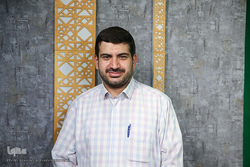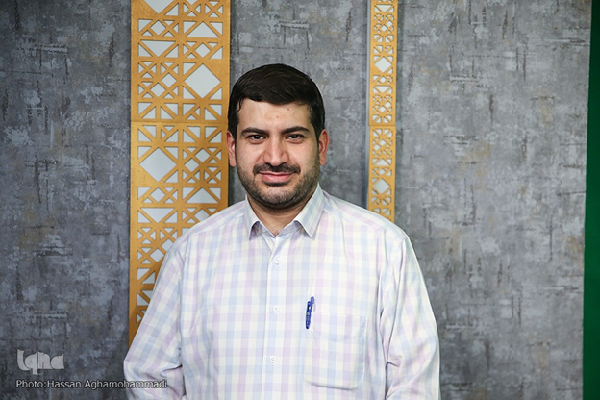Removing Shirk from Society; Basis of Surah At-Tawbah


This attention to Tawheed (monotheism) and rejection of Shrik is the main pivot of Surah At-Tawbah of the Holy Quran.
This is according to Hani Chitchian, a member of the Quran and Etrat School of the University of Tehran, speaking in the 30th session in a series on Surah At-Tawbah. Following are excerpts from his remarks in the session:
Surah Al-Kafiroon was revealed to the Holy Prophet (PBUH) during the early years after Bi’tha (appointment to prophethood). This shows that since the beginning of the Prophet’s (PBUH) movement, the main challenge was the issue of disbelievers’ beliefs and religion. When one worships God or anything other than God, it would create a style of life which is called religion. A religion is a set of rules and plans for reaching a certain goal. You can never reach true worship through a non-monotheistic religion. It is not possible to get your religion and way of life from idols and then achieve worshipping God. That is why in Surah Al-Kafiroon, God says: “You shall have your religion and I shall have my religion.” (Verse 6)
‘You shall have your religion’ means that if you want to worship God, there is a style of life that you must follow. When this Surah was revealed, the Holy Prophet (PBUH) was still in Mecca and had just begun his call. He did not have power at the time but introduced his policy since the beginning.
If systems do not change, there will not be any Ubudiyah (servitude to God). You cannot say I will not have Ubudiyah to those other than God but I follow their religion. The main theme of Surah At-Tawbah is the fact that if you want to abandon the other side’s economic, educational, … systems, there will be conflicts.
Verse 6 of Surah Al-Kafiroon wants to say that servitude to God has its own religion and style of life and so does servitude to others.
One cannot have non-monotheistic structures in a monotheistic system if he wants to act upon Tawheed.
Islam is not limited to Salah, fasting and Hajj. It also includes governance. In other words, Islam is not just Shariat but also rejection of non-Godly government systems. This is what we understand from “You shall have your religion and I shall have my religion.”
When the Prophet (PBUH) went to Medina and established a rule there, this issue is mentions in another way in Surah Al-Baqarah: “There is no compulsion in religion. Certainly, right has become clearly distinct from wrong. Whoever rejects the devil and believes in God has firmly taken hold of a strong handle that never breaks. God is All-hearing and knowing.”
At the beginning of the Prophet’s (PBUH) Hijra to Medina, God underlines the fact that rejection of Taghut is a subject of Islam’s movement. This concern is seen at the beginning, middle and end of the Prophet’s (PBUH) life that he strives to establish divine rule.
So you cannot take the frame of governance from elsewhere and instead have rulers who say payers and fast, etc. This is very important.
The basis of Surah At-Tawbah is a civilizational event. It wants to remove Shirk from all aspects of society. You should not think it became so after Islam gained power but it was the case since the beginning when Islam began it as a cultural movement.
In order to make a civilizational move, the Islamic society need to remove Shirk from its structure. Surah At-Tawbah says when you want to expel the disbelievers, do not fear. The same God Who helped you in previous cases will help you here as well.


